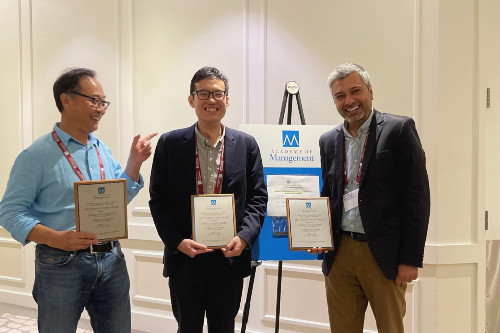The Economic & Social Research Council (ESRC) awards Doctoral Training Partnership to City and seven other partner institutions
By City Press Office (City Press Office), Published
City, University of London is a partner institution in one of the newly announced Economic & Social Research Council (ESRC)-funded doctoral training partnerships (DTPs).
The partnership was announced for the South & East Network for Social Sciences (SENSS) consortium of universities, of which City is a member.
The DTP will train the next generation of doctoral researchers in the social sciences, with the funding supporting 29 students per year over the next five years.
The ESRC is the UK’s largest funder of economic, social, behavioural and human data science. It is a subgroup of UK Research and Innovation (UKRI), a government body which invests in research and innovation to enrich lives and drive economic growth in the UK.
The SENSS has three key commitments: creating genuinely interdisciplinary research; being equal, diverse and inclusive; and being civic institutions at the heart of their communities. The consortium is structured around six interdisciplinary themes which relate to the UKRI's priority areas:
- Sustainability
- Climate emergency
- Digital social sciences
- Health
- Wellbeing
- Social care.
The SENSS consortium is led by the University of Essex and in addition to City includes the University of East Anglia; Goldsmiths, University of London; Middlesex University London; Cranfield University; the University of Lincoln and the University of Roehampton.
Professor Miguel Mera, Vice-President (Research), said:
Professor Chris Hull, Assistant Vice-President (Head of City Doctoral College), said:
Over the next five years, the ESRC will invest in 15 doctoral training partnerships spanning 89 institutions. The new five-year PhD studentship intake will begin in October 2024 and the ESRC aims to support 500 students each year.
Stian Westlake, ESRC Executive Chair, said:



